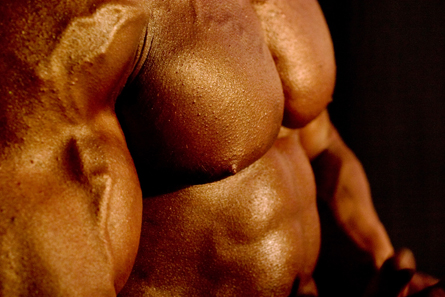Module 3
1. Module 3
1.24. Lesson 6
Module 3—The Male and Female Reproductive Systems
Lesson 6—Male Hormones

© Niderlander/Dreamstime
 Get Focused
Get Focused
Being male is a process that starts with a chromosomal arrangement determined at fertilization, and is not complete until maturation happens in puberty. Being male means the chromosomal arrangement is an X and a Y chromosome. This chromosome arrangement then causes testosterone to start being produced. The secretion of testosterone causes the formation of the male genitalia of a fetus in utero (in the uterus). The right timing and the proper amount of testosterone produced helps mature the male reproductive system so that continuation of the species is possible.
José, from “A Fertility Case Study,” started going through puberty at 12 years of age. For boys, the age that puberty starts varies greatly, but is said to begin when gonadotropin releasing hormone (GnRH) production is increased by the hypothalamus. This hormone activates the anterior pituitary to release follicle-stimulating hormone (FSH) and luteinizing hormone (LH), sometimes referred to in males as interstitial cell stimulating hormone (ICSH).
FSH stimulates sex organ development and gamete production, and leads to the Sertoli cells secreting inhibin. Inhibin targets the anterior pituitary and hypothalamus to inhibit FSH, creating a negative feedback loop.
LH or ICSH causes the interstitial cells in the testes to produce testosterone.
As José was going through puberty, both his primary and secondary sex characteristics were developing. The testosterone surge that occurred during puberty had an effect on his entire body. He developed facial and body hair, his voice deepened, his shoulders broadened, his hips narrowed, and he developed more muscle mass. However, by the time José was in high school and playing sports, he noticed that his muscle development was not as significant as the muscle development in some of the other players on his football team. He wondered about this difference.
In this lesson you will study the following focusing questions:
-
What are the male reproductive hormones?
-
How do hormones maintain in the male reproductive system?
-
What role do the male hormones play in regulating the primary and secondary sex characteristics?
gonadotropin releasing hormone (GnRH): a hormone produced by the hypothalamus; stimulates the anterior pituitary to produce FSH and LH
follicle-stimulating hormone (FSH): a hormone produced by the anterior pituitary; causes spermatogenesis in males
luteinizing hormone (LH): a reproductive hormone produced by the anterior pituitary; causes the release of testosterone in males, where it is also known as interstitial cell stimulating hormone (ICSH)
In females, LH triggers ovulation, stimulates the formation of the corpus luteum, and acts with FSH to stimulate estrogen production.
interstitial cell stimulating hormone (ICSH): also known, in the male, as luteinizing hormone
 Module 3: Lesson 6 Assignment
Module 3: Lesson 6 Assignment
Download a copy of the Module 3: Lesson 6 Assignment to your computer now. You will receive further instructions on how to complete this assignment later in the lesson.
You must decide what to do with the questions that are not marked by the teacher.
Remember that these questions provide you with the practice and feedback that you need to successfully complete this course. You should respond to all of the questions and place those answers in your course folder.
Make any notes about “A Fertility Case Study” from this lesson and place them in your course folder for your teacher’s feedback.
Remember that you also have the option of trying additional questions from the textbook for further practice. Consult with your teacher for the answers to these questions. The Key will also provide you with many Diploma Exam-style multiple-choice, numerical-response, and written-response questions that will be an excellent review of the module. Practising your responses to these types of questions is good preparation for the Diploma Exam.